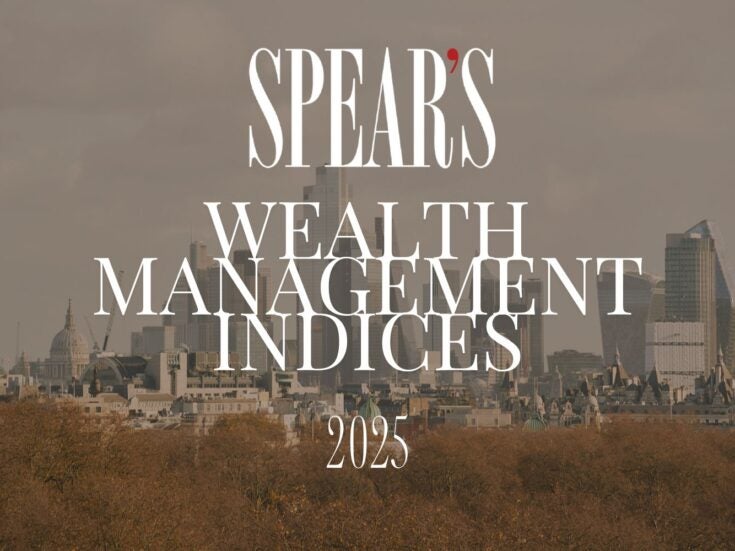
Quantitative Dis(easing)
While the eurozone remains at the back of investors’ minds, governments and central banks from the UK to Japan and the emerging markets are taking more emergency measures, says Guy Monson
REFLECTING ON INVESTMENT markets in recent months, a brave commentator might suggest that investors are about to lose their near two-year fixation with the eurozone drama — especially given that volatility remained surprisingly muted throughout the latest crisis.
Soaring bond yields in Spain and Italy seem also to have lost their ability to hold the rest of the world’s investment markets to ransom — Spanish yields touched 7 per cent and Italian yields exceeded 6 per cent, but local equity markets appeared resilient. In short, Europe just may be losing its ability to shock.
Leaders broadly crafted some short-term strategies at the last EU summit: eurozone funds to directly capitalise Spanish and (perhaps) Irish banks, a new system of European banking supervision (via the ECB) and a practical solution on ‘seniority’ of eurozone bail-out funds (one of the real bugbears for the Greek rescue). For the longer term, they foresee a €120 billion growth pact, further negotiations for closer fiscal and economic co-operation and lower conditionality for the ESM purchase of sovereign bonds.
In summary, a series of short-term solutions and the beginning of a longer-term road map… or close to what investors have been demanding. At Sarasin we see several issues as key to global investment policy for the remainder of 2012.

Firstly, there has been a welcome 20 per cent fall in the price of oil over the past three months, despite rising tensions over Iran and an increasingly global ban on Iranian imports. Initially, at least, such a sharp correction tends to bring equity markets down as growth fears rise and oil stocks fall, but the secondary effects have been a material fall in inflation.
Secondly, the second quarter was one of the worst on record for emerging market currencies since the Asian financial crisis of 1998. The Indian rupee and Brazilian real are both down by 10 per cent and the Russian rouble by 12 per cent, while a Chinese strategy to allow renminbi appreciation appears to have been determinedly reversed.
Additionally, money raised on global equity capital markets is at a seven-year low. Even with the $16 billion Facebook offering, the amount of global IPOs in Q2 was less than just those in emerging markets in Q4 2010. Private equity is struggling as exiting to the public market becomes near impossible and share buybacks continue, meaning that many Western equity markets are effectively shrinking as net issuance declines.
Elsewhere, following ten years of discussion, Prime Minister Noda of Japan agreed with the main opposition parties on raising the sales tax from 5 per cent (the lowest among the world’s large economies) to 10 per cent in 2015. Growing frustration with two decades of deflation and a soaring yen has led to immense pressure on the Bank of Japan to ‘do more’ with monetary policy; the action on sales tax could provide the Bank of Japan with the argument it needs to act more dramatically.
Meanwhile, Danish and Swedish regulators recently allowed their countries’ pension funds to alter the discount rate they apply to calculate benefit obligation, limiting pressure to keep adding to local sovereign bond holdings.
In Britain, the Pension Protection Agency reported that UK schemes saw their aggregate deficits increase to £312.1 billion at the end of May 2012, from £24.5 billion recorded at the end of May 2011, and liabilities soared by an extraordinary 32.5 per cent over the past year — almost entirely the result of the collapse in UK gilt yields. Action by regulators to alleviate this almost self-fulfilling rush to risk-free assets could be about to accelerate.
Issues like these argue for a political landscape abnormally dependent on monetary policy decisions — all the more so as there are now genuine signs of a slowdown in global growth as the manufacturing business cycle, particularly across the emerging world, has turned sour, while US job growth has eased.
Global central banks have reacted to this weakness with ever more monetary easing; interest rate cuts in China, Brazil and most EM economies, a new round of Operation Twist in the US and another £50 billion of quantitative easing in the UK. Meanwhile, there will likely be more asset purchases in Japan, and after the interest rate cut the ECB looks poised to take an even more proactive stance. In short, as signs of economic weakness pick up, monetary policy is the chosen global solution.







